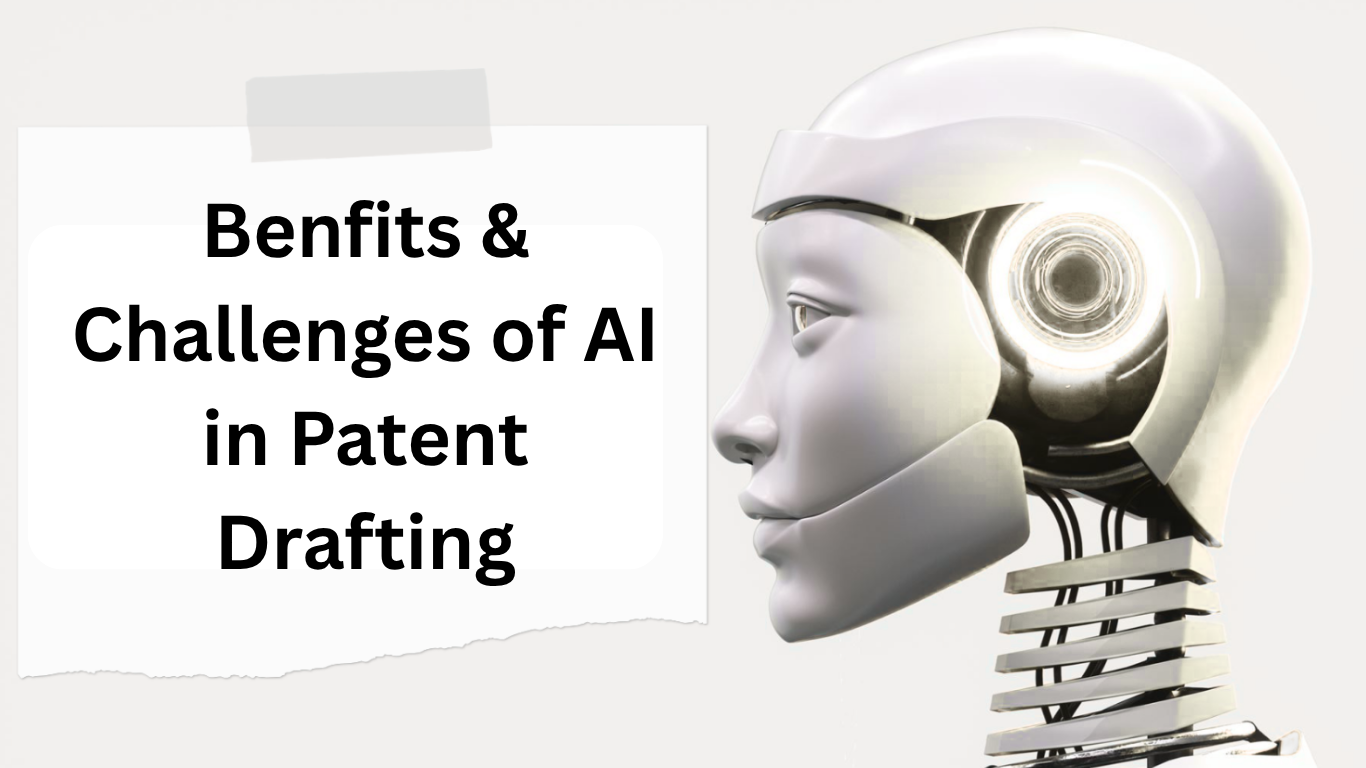AI for patent drafting is transforming how professionals approach one of the most demanding tasks in intellectual property. As a patent professional, you’re expected to quickly grasp complex technical disclosures and draft high-quality claims and applications under tight deadlines. Patent drafting is not just time-consuming; it’s demanding and requires deep technical knowledge, well-structured claim construction, and a clear understanding of existing prior art. Even seasoned attorneys take weeks, and in some cases, months to draft a patent application
On average, drafting a patent application takes anywhere from 10 to 40 hours of concentrated effort, spread across two to four weeks. However, for complex inventions in emerging technologies or highly regulated industries, that number can go up to 100 hours or more. Under this kind of pressure, the chances of error rise significantly. In fact, USPTO data shows that 80–90% of first-time applications are rejected—often due to claim drafting mistakes, prior art issues, or unclear, insufficient, or inaccurate descriptions
Clients are expecting faster turnarounds, inventions are getting more intricate, and budgets are tight, yet the expectation for quality and precision hasn’t changed. Attorneys are being asked to do more in less time, with fewer resources, and with no compromise on quality.
And that’s exactly why so many patent professionals are turning to AI-powered drafting tools. AI adoption in patent drafting has accelerated dramatically over the past few years. So much so that the USPTO issued new guidance titled “Guidance on Use of Artificial Intelligence-Based Tools in Practice Before the USPTO.” This reflects the growing role of AI in patent preparation and prosecution.
But this raises an important question.
Will AI replace patent attorneys? Definitely not.
Should patent attorneys use AI? Absolutely yes.
I remember attending a major IP conference three years ago. While discussing AI in patents, an IP lead told me something that stuck:
“It’s not about whether patent professionals will use AI. The real question is—when.”
That statement has aged well.
Experts describe 2023 as the year of invention, 2024 as the year of exploration, and 2025 as the year of adoption for AI in patent practice. We’ve moved beyond curiosity, and AI tools are now part of the standard toolkit.
Today, AI Patent generator like IP Author streamline the most repetitive and error-prone parts of drafting like:
- Instantly generate boilerplate sections tailored to your invention
- Automatically format claims to meet USPTO standards
- Draft preliminary claim sets with varying breadth and scope
- Run AI-powered prior art comparisons without leaving the drafting interface
- Maintain linguistic consistency across the entire specification
What took hours will now be completed in minutes, which allows attorneys to focus on the most important aspects like strategic thinking, argument structuring, and client engagement. In a world where most applications are rejected the first time, this support is very much necessary. An attorney who uses AI isn’t just fast—they’re more accurate, more consistent, and often more cost-effective than someone drafting manually from scratch.
How AI is Reshaping Patent Drafting
Today, patent drafting AI tools are not just a wave of automation—they are reshaping how patent professionals approach this complex task.
Faster Patent Applications with AI Tools
AI patent generators automate many time-consuming tasks in patent application preparation. They generate abstracts, detailed descriptions, summaries, figures, and intelligent claim constructions. This helps patent professionals reduce manual work and focus on refining and optimizing the application. This significantly reduces drafting time and helps them meet tight deadlines without compromising quality.
Smarter Prior Art Search with AI
Many patent drafting software platforms now integrate prior art search features that scan existing patent and non-patent literature. This helps users see if similar inventions already exist.
Tools like IP Author go a step further. They show a percentage match between your invention and the prior art. They also highlight which parts of your invention overlap with existing prior art. This makes it easier to identify prior art early and rewrite claims accordingly.
By identifying overlaps early, these tools help avoid examiner objections and claim rejections. This saves time and increases the chances of getting the patent approved.
Smarter Prior Art Search with AI
A good AI-powered patent drafting tool keeps the patent application consistent in terminology, making the document clearer and easier to understand. AI patent generator like IP Author can adapt to the drafting styles preferred by patent offices such as the USPTO and EPO, reducing the risk of non-compliance and rejection.
Key Limitations and Risks of AI Drafting Tools
AI will not replace an experienced attorney
While AI patent drafting tools assist with tasks like claim generation, legal phrasing, and structuring, they can’t replace the nuanced legal and strategic judgment of a skilled patent attorney. These tools are designed to support, not substitute the attorney’s role. Patent drafting tools will help in streamlining the drafting process, but critical decisions like aligning claim scope with business goals and anticipating litigation risk still require legal expertise.
Confidentiality and Security Risks
Using free AI systems can pose serious confidentiality and security risks, as your information may be used for model training or exposed to third parties. Even enterprise systems may retain inputs and outputs if cybersecurity is inadequate or if the vendor doesn’t adhere to top data security practices. Patent teams can mitigate these risks by choosing AI tools that prioritize data security and confidentiality.
Despite the above advantages and limitations, AI tools are merely assistants to patent professionals—not replacements.A seasoned patent attorney who leverages AI tools can achieve superior, faster, and more cost-efficient results than an attorney who doesn’t use AI.
Want to unlock efficiency and elevate your practice with IP Author? Book a demo call today.

